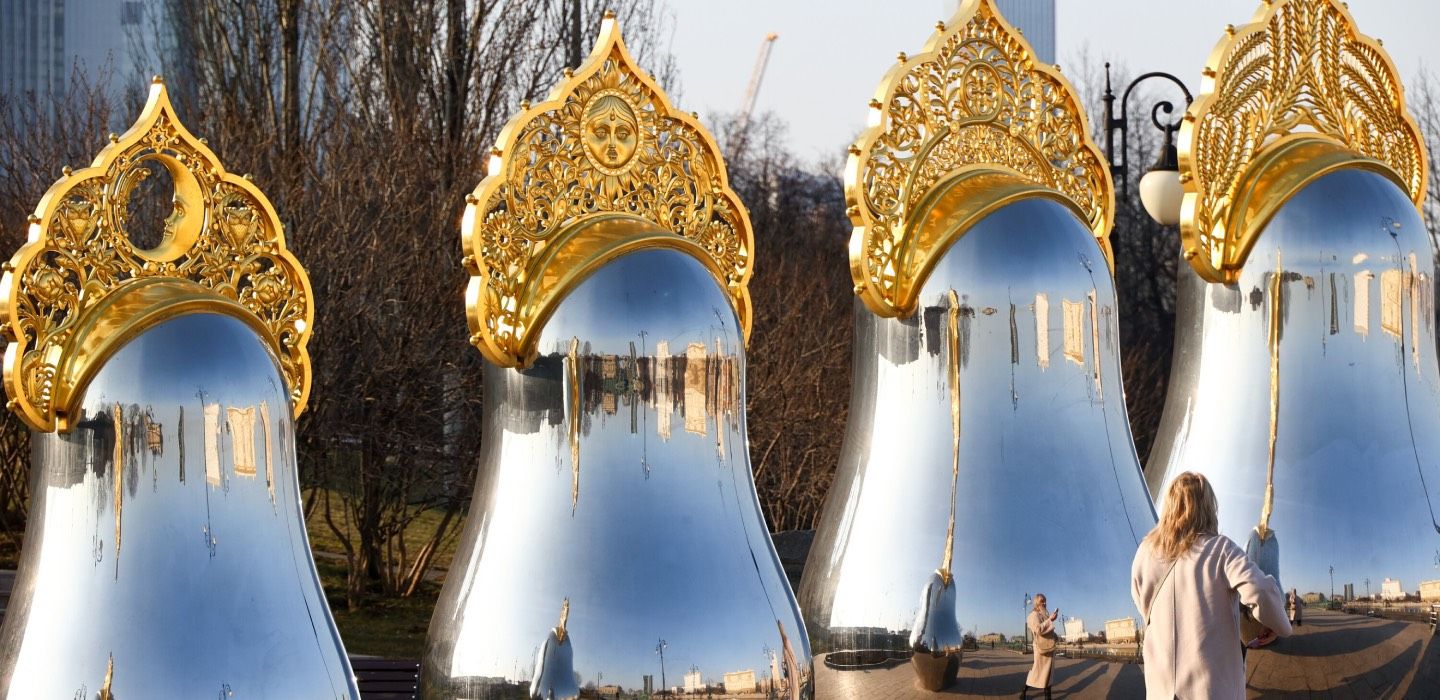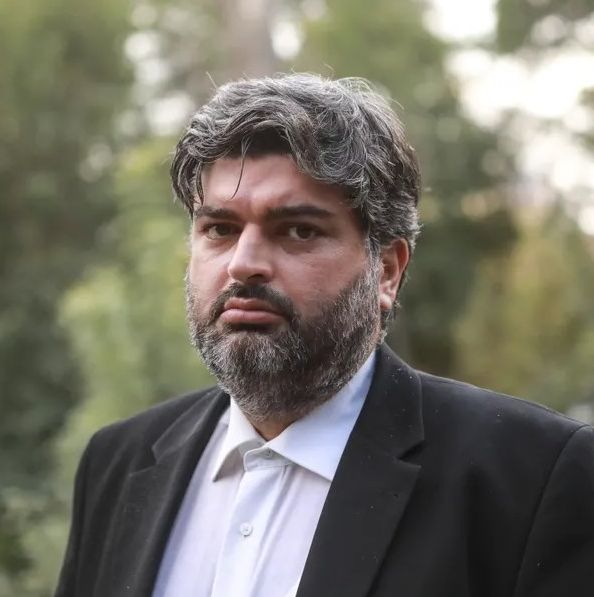Having failed to build a team that he can fully trust or establish strong state institutions, Mirziyoyev has become reliant on his family.
Galiya Ibragimova
{
"authors": [
"Andrey Pertsev"
],
"type": "commentary",
"blog": "Carnegie Politika",
"centerAffiliationAll": "",
"centers": [
"Carnegie Endowment for International Peace",
"Carnegie Russia Eurasia Center"
],
"collections": [
"Politika: The Best of 2025"
],
"englishNewsletterAll": "",
"nonEnglishNewsletterAll": "",
"primaryCenter": "Carnegie Russia Eurasia Center",
"programAffiliation": "",
"programs": [],
"projects": [],
"regions": [
"Russia"
],
"topics": [
"Domestic Politics",
"Economy",
"Civil Society"
]
}
Source: Getty
Governors and senators are the perfect lightning rods for the Kremlin. And if unpopular measures are somehow mitigated, then Putin, the government, and State Duma deputies can appear to have saved the day.
War and sanctions continue to test the resilience of Russia’s public finances. The budget deficit is projected to reach 5.74 trillion rubles by the end of 2025: one-sixth of revenue. To balance next year’s budget, the government has announced another round of unpopular measures: following last year’s increase in income tax and corporate profit tax, VAT will now be increased from 20 percent to 22 percent, and the revenue threshold for VAT tax breaks for small businesses will be slashed.
At the same time, the authorities understand that the latest hikes may soon prove insufficient to support the struggling economy, so they are gradually preparing society for the next slew of unpopular steps—primarily through governors and Federation Council senators, whom the presidential administration’s political bloc deems the most suitable scapegoats. Then, if some of the unpopular measures can somehow be avoided, as an added bonus, the executive branch and President Vladimir Putin personally will look good compared with the “bad cops.”
In early October, the Federation Council—the upper chamber of the Russian parliament—proposed an early end to an experiment in the self-employment sector that began in 2019 and was aimed at combating the shadow economy. People who were working unofficially and not paying taxes were invited to come out of the shadows and pay just 4–6 percent of their income (compared with the standard personal income tax rate of 13 percent), without worrying about repercussions for concealing their income. Self-employed individuals were also exempted from paying social security contributions.
The proposal went down well with the public, and about 13 million people registered as self-employed—roughly a sixth of the economically active population. The experiment was due to run through 2028, after which the government was to decide whether to continue it or not. But senators have called for the scheme to be abolished next year.
The aim of the proposal is clear: to reduce the number of people paying lower tax rates and force self-employed people to either register as entrepreneurs or pay the full personal income tax rate. Naturally, the self-employed do not like this idea.
The government rejected the Federation Council’s proposal to end the scheme early, but what’s important is that the topic was even raised in the public sphere. As a fully controlled chamber of parliament, it would never have dared to propose such unpopular measures without Kremlin approval. This was a test of public reaction.
Another initiative currently under discussion is introducing social contributions for Russians who are officially unemployed. Along with those who really are unemployed, this category also includes self-employed people and freelancers with official incomes who haven’t registered as self-employed. Once again, the proposal came from the Federation Council, whose speaker, Valentina Matviyenko, said that social contributions for this category would be a triumph of “social justice” since there is enormous expenditure on the unemployed, many of whom, she claimed, either simply don’t want to work or are working in the shadow economy. Similar ideas have been voiced by other senior officials, including Moscow Mayor Sergei Sobyanin and Moscow region governor Andrei Vorobyov.
These two initiatives are closely related. If the self-employment tax scheme is implemented, some self-employed people will try to retreat into the shadows once again and become officially unemployed. But then the second initiative will catch up with them, forcing them to pay social contributions regardless.
The Federation Council has also played a significant role in proposals to cut social support measures. Matviyenko has proposed scrapping the so-called maternity capital payments made to families upon the birth of their first and second children, and only giving them to families from three children onwards.
The regional authorities aren’t just talking; they’re taking action. Budgets in sixty-eight of Russia’s regions are running deficits, forcing governors to seek additional sources of revenue. The simplest solution is to increase local taxes and charges. The Krasnoyarsk, Novosibirsk, and Orenburg regions will increase the tax on vehicles, for example, while several popular tourist towns in the Yaroslavl region will introduce parking charges.
Many Russians have benefitted from payments for having children, reduced interest rates on mortgages for families with children, and tax breaks, and the Russian authorities have made active use of this for propaganda purposes—to show that Russia was catching up with and even overtaking the West. Other points of pride were the country’s supposedly free healthcare and comparatively low tax rates.
Before the start of Russia’s full-scale war against Ukraine, the Russian state could afford such generosity, but sanctions and military spending have changed all that. The Kremlin’s new PR stance, as formulated by Putin’s spokesman Dmitry Peskov, is that: “We are now in the most acute stage of the war,” and the authorities have no doubt that under these conditions, Russians are “ready to shoulder the additional burden.”
In other words, if previously the formula for interaction between the Russian regime and society boiled down to “don’t oppose us and we’ll allow you to live in relative prosperity,” now the Kremlin is making it clear that: “you must all support us, and since you support us, you must pay up.”
Neither Putin nor government officials are in any hurry to announce unpopular measures or explain them to the public. For that, the government has its “bad cop” scapegoats, the senators and governors.
This casting of roles is no accident. Members of the Federation Council are not elected, but delegated by regional heads and local parliaments. In 2007, 46 percent of Russians admitted they did not know how the Federation Council was formed and did not really understand its role—and this was back when senators were often quite well-known figures in the regions they represented.
Since then, understanding and awareness about the work of senators has only decreased: the upper chamber is largely filled with people who have no connection to the region entrusted to them. The reputation of the Federation Council can easily be sacrificed, therefore, since the public in any case has no influence on its formation.
The State Duma, the lower chamber of parliament, for which elections will be held in 2026, is a different matter. Nor is the government a suitable scapegoat, since it is connected to the president, who nominates the prime minister.
In this setup, governors and senators are the perfect lightning rods for the Kremlin. While the former have long been accustomed to this role, having been tasked with introducing unpopular measures during the pandemic to protect the federal leadership from falling ratings, for the latter, this is a relatively new experience. In any case, naturally, they are given no choice.
If the state goes ahead and abolishes the self-employed status system, introduces social contributions for the unemployed, and revises the rules for maternity capital payments and family mortgages, then these “bad cops” will bear the brunt of the backlash. And if the unpopular measures are somehow mitigated, then the government, State Duma deputies, and Putin himself will once again appear to the general public as the “good cops,” staging a timely intervention to save the Russian people from further extortion.
Carnegie does not take institutional positions on public policy issues; the views represented herein are those of the author(s) and do not necessarily reflect the views of Carnegie, its staff, or its trustees.
Having failed to build a team that he can fully trust or establish strong state institutions, Mirziyoyev has become reliant on his family.

Galiya Ibragimova
Insisting on Zelensky’s resignation is not just a personal vendetta, but a clear signal that the Kremlin would like to send to all its neighbors: even if you manage to put up some resistance, you will ultimately pay the price—including on a personal level.

Vladislav Gorin
For Putin, upgrading Russia’s nuclear forces was a secondary goal. The main aim was to gain an advantage over the West, including by strengthening the nuclear threat on all fronts. That made growth in missile arsenals and a new arms race inevitable.

Maxim Starchak
For a real example of political forces engaged in the militarization of society, the Russian leadership might consider looking closer to home.

James D.J. Brown
Instead of a guaranteed ally, the Kremlin now perceives Armenia as yet another hybrid battlefield where it is fighting the West.

Mikayel Zolyan